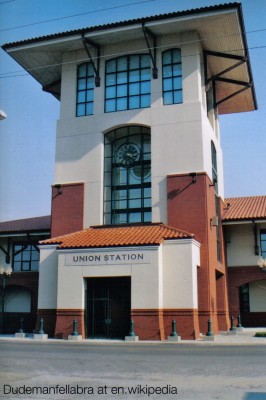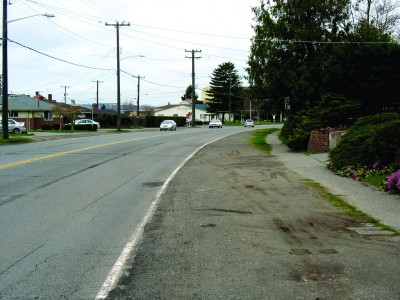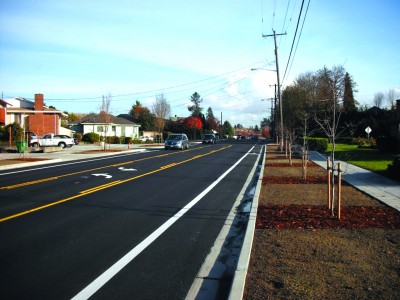The Senate’s transportation bill, MAP-21, goes farther than any recent transportation measure to devolve responsibility and funds down to the state level. An amendment to be debated this week would push that devolution even further – down to the local level — for a small pot of money that could make a big difference.
The Cardin-Cochran amendment (S.Amd 1549) would allow communities to build safer streets, provide more transportation options, attract new residents and businesses and spark economic revitalization in areas that desperately need it.
The amendment would give local elected leaders — who know the transportation and safety needs of their constituents best — more direct control over how to spend those funds and allow them to revitalize their communities while building out the full transportation network they need.
Action: Tell your Senators to support the Cardin-Cochran amendment today!
States usually focus on building larger projects, but those projects often need further refinements within those communities in order to function well — like new bike lanes, wider sidewalks, narrower lanes on the town’s main street, safer routes to school for children, or bus and rail stop improvements. These larger projects can also sometimes create health, safety or other mpacts that local communities are eager to address. This amendment would give them the control and the voice in these decisions that they desperately want in order to meet their own priorities.
What would this amendment do?
The Senate MAP-21 bill creates a new program called “Additional Activities” that includes a broad range of eligible projects that include Main Street revitalizations, local street safety improvements, street and boulevard redesigns, bus stop and rail station access improvements, Safe Routes to Schools, Recreational Trails, among many others — including the former programs that invested in safe walking and biking. This amendment turns that Additional Activities program into a competitive grant program for local governments and other entitites.
Communities would then be able to apply for a funds from a protected pot of dollars to build these kinds of projects that are extremely popular with local governments – and their citizens – because they promote safer, healthier communities, economic redevelopment and tourism, while creating connections to job centers, transit stops, recreational areas and other destinations.
This would restore control and choice back to local governments to invest in small projects in their communities. The state could not take the money away unless local communities didn’t apply for the funds or had no eligible ideas for how to use it. At that point the state could spend that money on other priorities. Win-win, right?
The Cardin-Cochran Amendment gives increased decision-making authority and control to local governments in cities, small towns and rural areas alike to fund transportation projects that get the most bang for the taxpayer buck.
| I have served on the State level of government; I have been mayor of a major city. I believe the closer you get to the people, the more responsible government is. I believe that to be true.”
– Sen. Jim Inhofe (R-OK), 2/9/2012
|
Local control in practice
So what does this mean practically? Here are three short stories of how local communities were able to take some state dollars and make key investments in their communities — investments and projects that could easily be passed over if the state has total control over all transportation dollars.
Saving lives in Nashville, Tennessee
The planned construction of new sidewalks on the south side of Harding Place from I-65 to I-24 in Nashville would connect multi-family housing to grocery stores, restaurants and other retail destinations, as well as provide a connection to the closest transit stop. This safety project is designed to reduce the high number of pedestrians who are injured and killed while walking along roads that are currently dangerous for residents.
 Reviving downtown in Meridian, Mississippi
Reviving downtown in Meridian, Mississippi
Beginning in the early 1990s, community leaders worked to create a multi-modal transportation center in the heart of town with the help of over $5 million in federal and state grants. As a result, Meridian’s Union Station (right) was reborn as a thriving rail and bus depot. The $6.8 million project has leveraged more than $8 million in private investment in the Depot District, raising property values and city tax receipts, and lowering crime in the station’s neighborhood.
Creating access for all in Springfield, Missouri
A planned project to provide continuous ADA-compliant sidewalks on both sides of Kearney St. from the Kansas Expressway (Route 13) to Glenstone Avenue (Loop 44) is a high priority for local and state officials and would provide connectivity to area shopping centers and transit stops. This project is projected to cost less than $1 million, but without funding, local officials cannot move forward with building safer streets for pedestrians and residents with disabilities.
—-
If you want to share this with your Senator or others, you can download a version of this information as a two-page fact sheet. (pdf)







